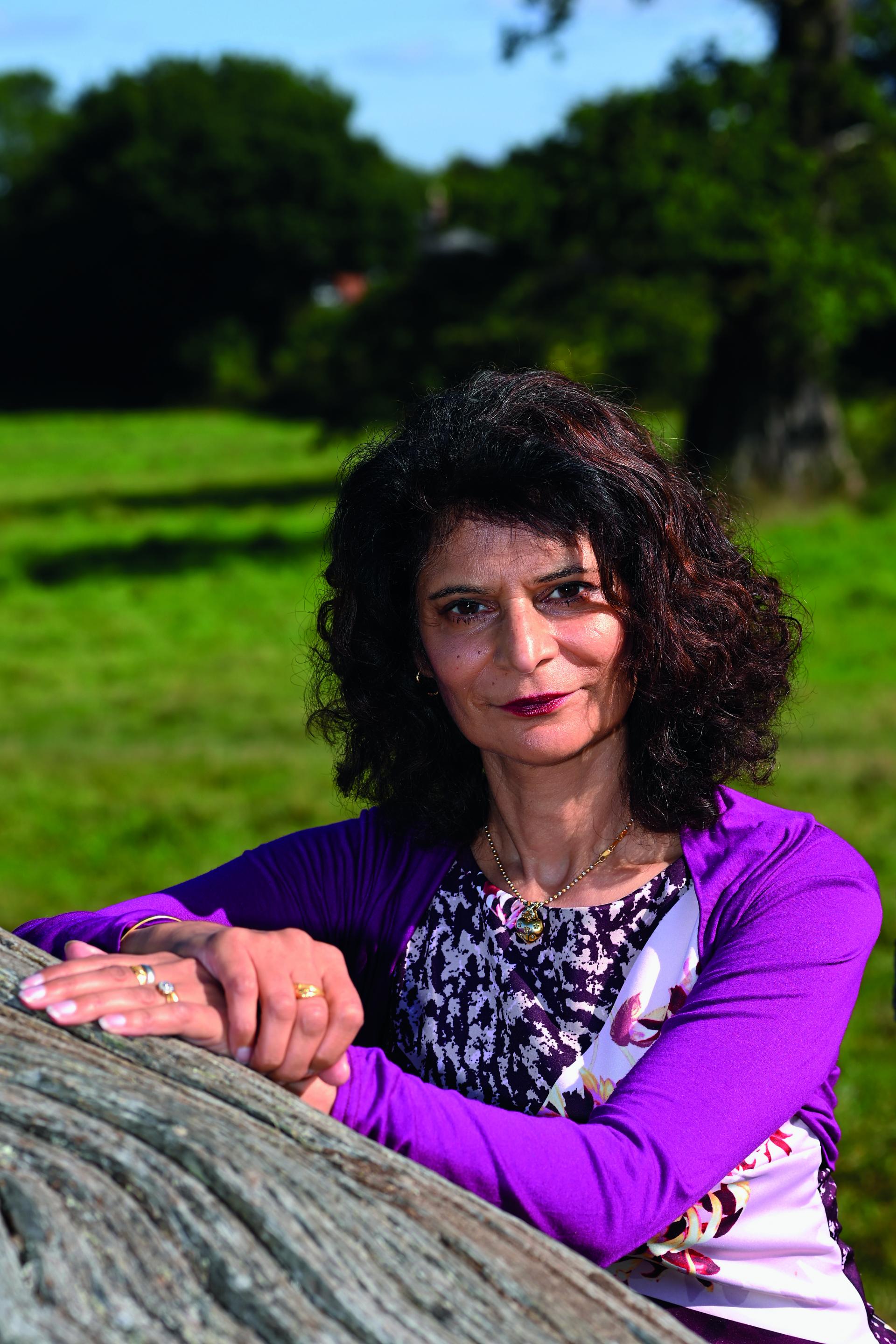Surinder
Nurse consultant Surinder shares her experience of nodular lymphocyte-predominant Hodgkin lymphoma.

I am a nurse consultant in primary care. In November 2018, I noticed I had raised lymph nodes in my neck, and could feel lumps which felt very small and mobile. At the time I thought it was just my lymphatic system doing its job. I was also experiencing dizziness and vertigo, but as I have spondylitis, which is inflammation in the spinal bones or vertebrae, I thought it was as a result of that condition.
The lumps on my neck didn’t go away, so I asked my colleagues to check them out. They said that if they didn’t go after a short period I should have them investigated.
I was referred to ENT (ear, nose and throat) who thought they were fatty lumps. Although my blood tests were fine, the ENT consultant decided to do a biopsy. I also requested that the lumps be removed and checked.
The results of the biopsy suggested I had nodular lymphocyte-predominant Hodgkin lymphoma (NLPHL).
I had a CT/PET scan, which showed I had loads of tiny clusters around my collar bone, some by my spleen and some in my chest. My diagnosis was confirmed as NLPHL, stage 3S.
I was shocked at the extent of the disease, as I had expected just a couple of nodes to be affected. My husband was with me and was enormously supportive and the doctor explained that NLPHL was slow-growing and that my prognosis was good. I
Telling my family was difficult. We are an Indian family, and I knew some of the family would think this would mean the end of my life. I'm sure other people will identify with this. We had lost my mum to cancer 2 years beforehand, so I could understand their fears. I needed to tell them at the right time and in the right circumstances. We went out for a meal, but all I can recall of that evening was the tears. So many tears. But in my own mind I was convinced I would get through this.
My consultant explained I will start R-CHOP chemotherapy straight away although with this cancer there could have been a period of active monitoring (watch and wait). Although radiotherapy can be an option for NLPHL, they said it was not appropriate in my case.
After the first chemotherapy my long dark hair just blew out. For me it really is a major part of my identity, and emotionally I found this really difficult. It was a very clear indication of what I was going through – to myself and also to my family. I think I handled the treatment pretty well, and tried to take a ‘I’ve just got to get on with this’ approach. I was fortunate that I didn’t get any infections that could have delayed my treatment and managed to complete the course of chemotherapy within five months.
After the third chemotherapy cycle the scan indicated that the lymphoma had all gone. My consultant said that it was a brilliant response. I hoped they would say I could stop the treatment at this stage, but they made it clear I needed to complete the next three cycles.I knew that would be the case, and part of me felt very positive, but I can honestly say that was the longest time of my life.
I finished my treatment in June 2019 and was back at work the following month. For my mental wellbeing I really needed to get back to some sort of normality.
One problem I had was that the backs of my legs felt very stiff, something that caused me problems from early on in the chemotherapy. As a result I have reduced my hours as my legs simply won’t take it past 4.30pm.
A year and a half later, I discovered a cyst on my back which I decided to have removed because I was having aches and pain more often. I also had rheumatology screening which showed raised markers for rheumatoid arthritis and connective tissue disease. I wonder whether these things could be caused by the chemotherapy?
As a nurse consultant, I found the experience has changed the way I practice in some ways.
As a result of my experience, I appreciate the need to keep people updated regularly and feel I have a greater understanding of their worries and anxieties. I also have a far greater knowledge of lymphoma!’
